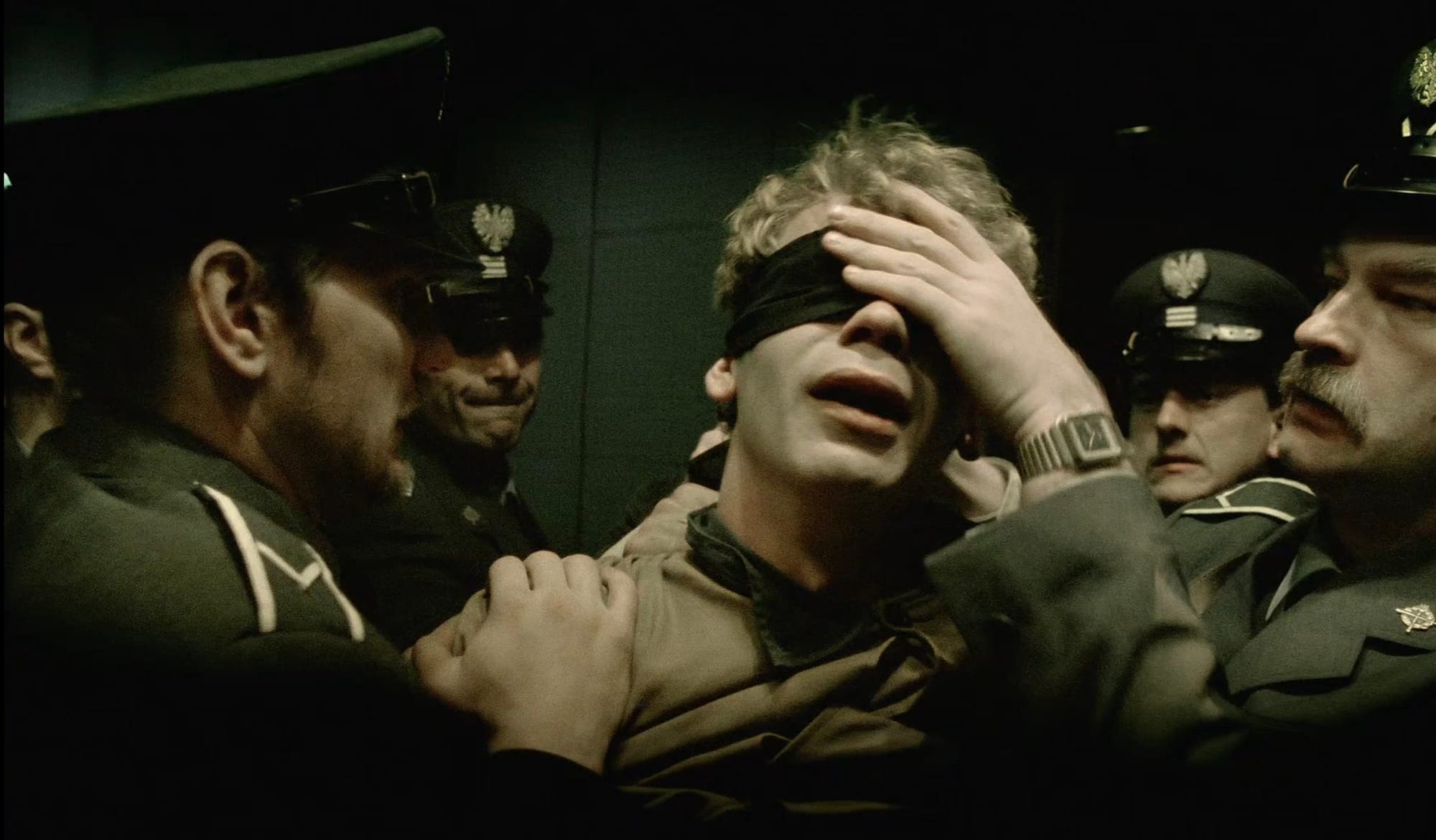Dekalog 5: Part 8, Killing

Instead of my usual scene-by-scene approach to the powerful closing of episode 5, I want to start at the end. The camera opens to a meadow, next to a forest. There’s a blinding ball of light coming from the forest. The camera pans to the left, across the meadow, to another part of the forest.
Piotr is in his car, which seems to have run aground. Why is he there? Has he come to visit Miroslaw’s mother? Is this even the meadow discussed in Miroslaw’s earlier story about his sister?
It doesn’t matter, because Piotr’s frustrated rage is all we see and hear. He repeats again and again “I cannot stand this!” This is tragic. Piotr’s job is to be persuasive and eloquent. He was hired to defend the rights of people being tried for the worst crimes imaginable.
And he is left with nothing but inarticulate rage after what he has witnessed. Viewers know that Miroslaw did and you can’t help but be sickened by his violence. But there is something even more unnerving about institutional killing.
It’s in the six guards who escort this one weak man to the execution room. It’s also in the institutional rituals — the reading of the charges, the medical form to be signed, the priest who does nothing but make the sign of the cross on his forehead, the guard who offers a cigarette. It’s all meant to feel official and normal.
Miroslaw rebels against this ritual, but has no chance. He is forced into his noose, a blindfold put on his face, the rope hurriedly tightened, the trap door falling.
And none of this is about bringing just to Jan, the cabdriver, or create comfort for his family. Capital punishment exists so that the state maintains the upper hand. The state has to hold every power an individual might, even in the worst cases of human behavior. So if a person can kill, then the state must kill as well, otherwise the state lowers itself below the individual.
This is what Piotr cannot stand, the realization that he is just another cog in the state’s machinery. He is, in the language of Etienne de la Boetie, a lackey of voluntary servitude, giving eloquent speeches about the death penalty so that the system can continue executions while pretending it listens to the moral opposition.
In times of moral clarity, the right words are obvious. Sometimes even having to write or speak them is outrageous. It’s true in an execution room, it’s equally true as a country descends into militant autocracy. Words will not save us in times like these.